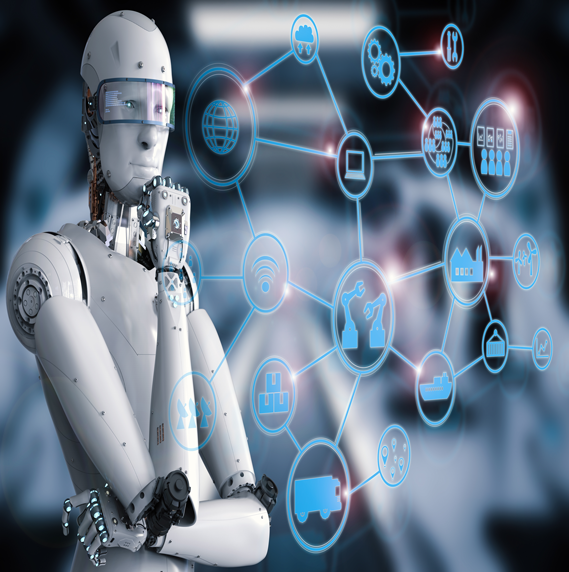Blog Details

Artificial Intelligence – Working Principle, Types, Benefits, and Its Importance
Artificial intelligence is a branch of computer science, that emphasizes the design of intelligent machines that react and work like humans.
AI enables machines to adjust to new inputs, learn from experience, and perform like humans. Speech recognition and learning are some of the examples of machines designed with artificial intelligence.
How Does it Work?
AI is an attempt to replicate human intelligence in machines. The following four approaches can define the field of AI:
![]() Thinking rationally
Thinking rationally
![]() Thinking humanly
Thinking humanly
![]() Acting rationally
Acting rationally
![]() Acting humanly
Acting humanly
Types of Artificial Intelligence
AI is classified into two categories, which are narrow AI and AGI.
1. Narrow Artificial Intelligence
Following are a few examples of narrow AI:
![]() Self-driving cars
Self-driving cars
![]() Google search
Google search
![]() Image recognition software
Image recognition software
![]() Siri app
Siri app
2. Artificial General Intelligence
It is also referred to as “Strong AI”. It is a machine with general intelligence, much like a human being. The machine can apply human intelligence to overcome the issues. An AGI machine can do any task that a human is capable of doing. However, the broad intellectual capacities of AGI are boosted beyond human capacities by its ability to access and process huge amounts of data at unbelievable speeds.
Working Together With AI
Working together with AI can provide many benefits and some of them include:
![]() Give us a better understanding, vision, and memory
Give us a better understanding, vision, and memory
![]() Break down economic barriers including translation and language barriers
Break down economic barriers including translation and language barriers
![]() Bring analytics to various domains and industries
Bring analytics to various domains and industries
![]() Makes us better at what we do
Makes us better at what we do
![]() Enhances the performance of existing analytic technologies
Enhances the performance of existing analytic technologies
Why is Artificial Intelligence Important?
1.Unbelievable Accuracy
Achieving unbelievable accuracy via deep neural networks was once impossible becomes possible with AI. Take, for example, your interactions with Google search and Google photos are based on deep learning, but they become accurate the more often you use them. The artificial intelligence system plays a vital role in medical fields to detect cancer on MRIs with the same precision as trained radiologists.
2.Automates Repetitive Learning
Repetitive learning and discovery via data are possible with AI. AI is different from hardware-driven, robotic automation. It performs high-volume and frequent computerized tasks reliably with no tiredness.
3. Get the Out of Data
No matter what you search for, your answers will be in the data. You just need to apply AI to get them out. The data can now create a competitive advantage. If you have the best data in a competitive industry, you can get the most out of your best data even if everyone is applying the same techniques.
4.AI Adds Intelligence to Existing Products
In many cases, AI will never be sold as an individual application. Instead, existing products will be updated with AI capacities. Smart machines, automation, bots, and conversational platforms can be merged with high-volume of data to enhance many technologies at the workplace and home.
5.Deeper Data Analyzation
Designing a fraud detection system with five hidden layers was once impossible, but now, it is possible with big data and incredible computing power. Lots of data is needed to train deep learning, as they learn directly from the data. They become more accurate when you feed them more data.
6.AI Can Reinvent the World
Once the AI systems begin working in its full capacity, it will reinvent the world. In the future, tasks like garbage disposal, digging, construction, and more may be taken care of by the AI applications. It will be a world where no one will be underestimated and every human will be considered equal.
You can see AI in every industry such as health care, banking, manufacturing, retail, and more. Artificial intelligence is not here to replace humans. It increases our abilities and makes us better at a task.












